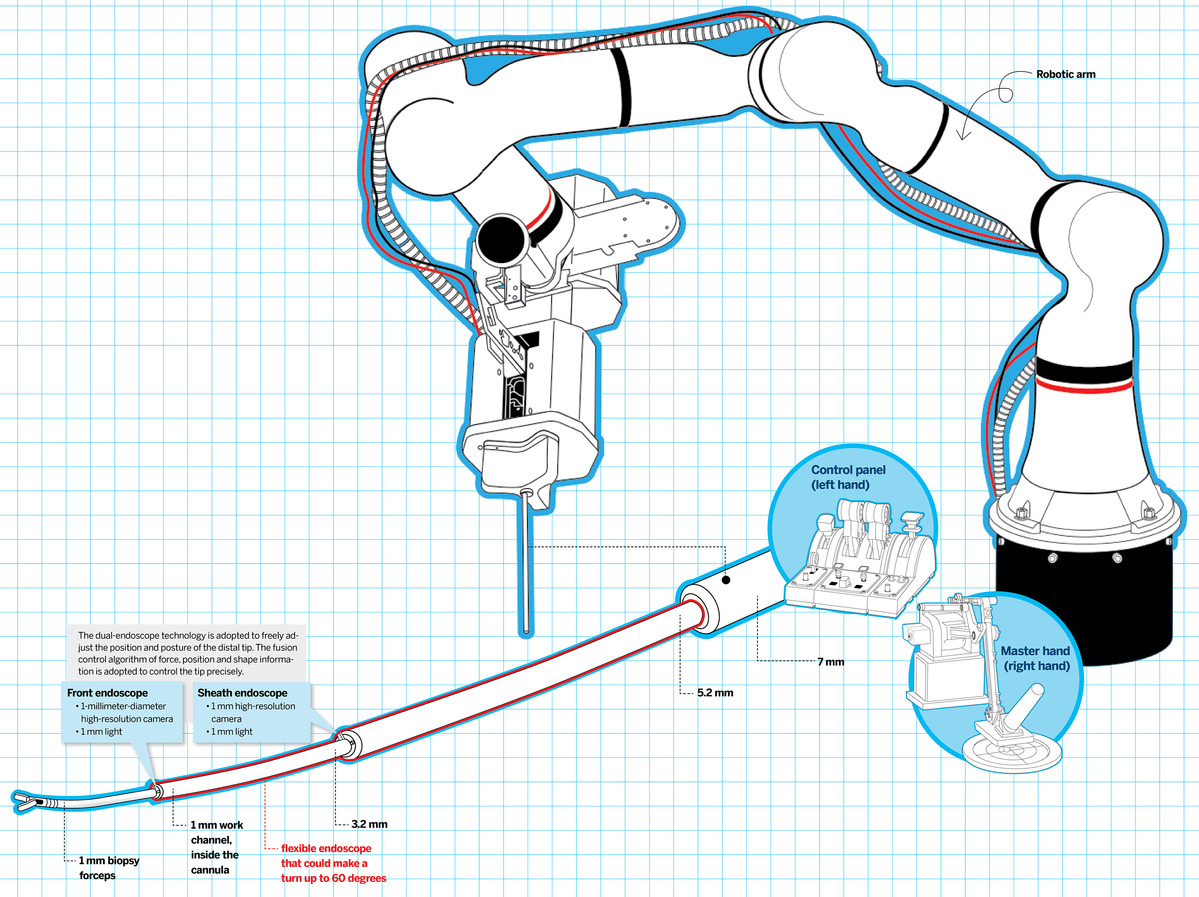Miracles in operation


In 2020, Chan pitched his idea of a flexible surgical robot again after several futile attempts, hoping to resolve the problem once and for all. Liu, who had returned from the United Kingdom to join the Centre for Artificial Intelligence and Robotics at the Chinese Academy of Sciences' Hong Kong Institute of Science and Innovation, immediately aligned himself with Chan's vision. Their concerted effort led to the creation of MicroNeuro in about a year.
MicroNeuro addresses two key neurosurgical challenges — executing precise maneuvers in the brain's delicate tissues, and providing real-time visual feedback of these movements.
"The hardest part was translating Chan's clinical needs into engineering specifications," Liu says. Chan emphasized safety and stability, which the team materialized through haptic vibration feedback — meaning that each MicroNeuro movement provides physical response.
For visualization, MicroNeuro integrates the CARES Copilot (now in its second generation) — an AI multimodal system combining virtual reality-assisted navigation for real-time endoscopic tracking and allowing surgeons to "see through" brain structures while operating — as well as multidata processing of voices, ultrasound and computed tomography scans.
























